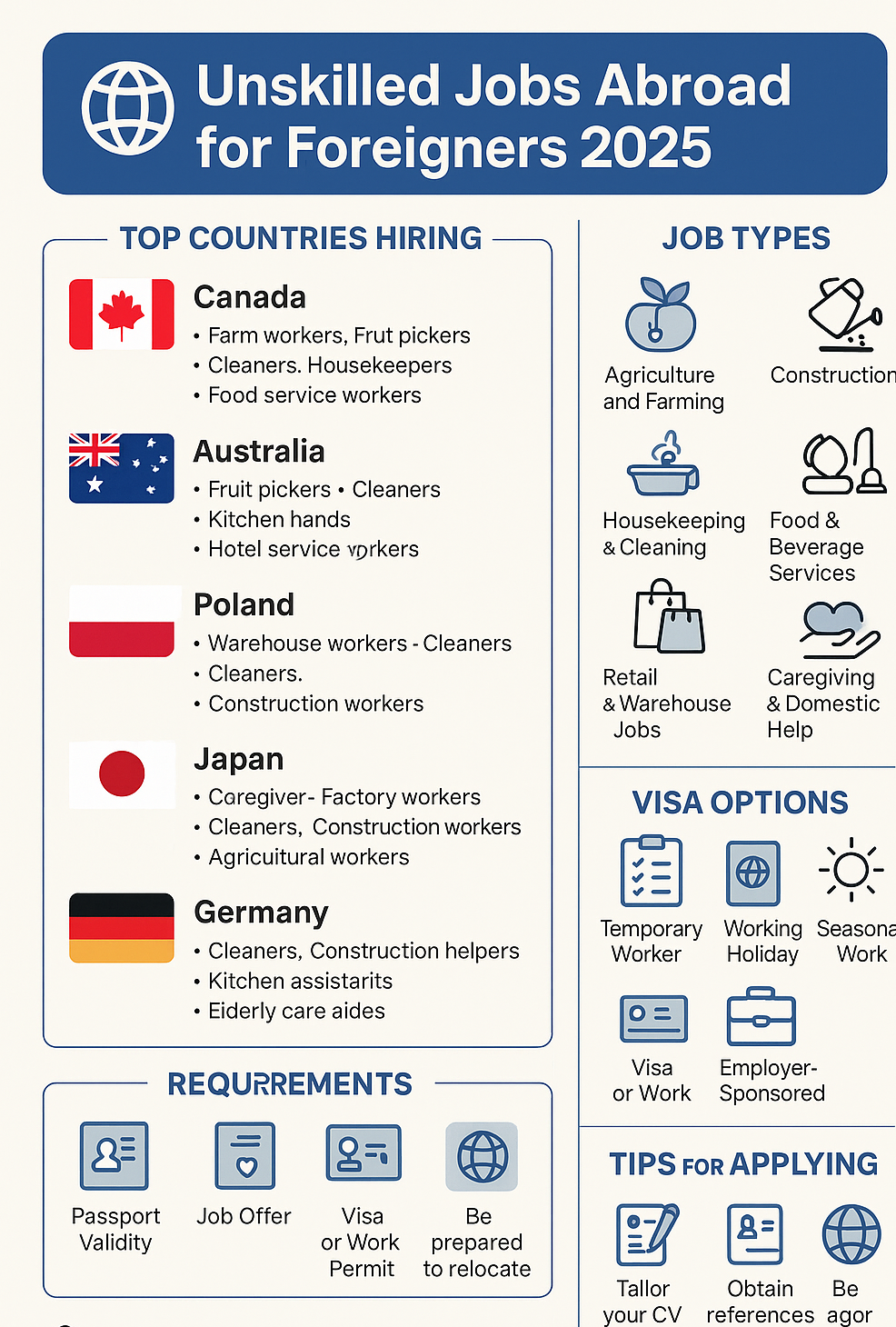Are you thinking of moving to the Netherlands for work? If so, you’re in the right place. The Dutch job market is vibrant and diverse, offering great opportunities for both skilled and unskilled workers. However, landing a job in a foreign country can feel daunting, especially if you’re unfamiliar with the local job search process.
This guide will provide you with practical tips on how to find a job in the Netherlands as a foreigner, covering everything from job market research to CV adjustments and networking strategies.
Research the Dutch Job Market
The first step in your job search, regardless of the country you’re targeting, is to research the job market. You need to make sure that the industry you’re interested in and the specific role you’re aiming for are in demand. Additionally, ensure that you meet the qualifications required by the companies hiring in that industry.
The Netherlands boasts a strong economy and offers a wide range of job opportunities. Some of the key sectors where you are likely to find job openings include:
- Information Technology (IT): With a strong tech scene and various startups, the Netherlands is a great place for software developers, data scientists, and IT specialists. The country even has special visa programs for entrepreneurs.
- Healthcare: There’s always a high demand for healthcare professionals, such as doctors, nurses, and support staff, due to an aging population and healthcare needs.
- Logistics and Supply Chain: As a major hub for international trade, the Netherlands has numerous job opportunities in logistics, supply chain management, and planning.
- Financial Services: Banks and financial institutions, especially in cities like Amsterdam, offer many roles in accounting, finance, and auditing.
- Creative and Media Jobs: Amsterdam is home to a vibrant creative scene, with opportunities in media, advertising, design, and more. If you’re in the creative industry, this is a great place to be.
Additionally, many companies moved their headquarters from the UK to the Netherlands after Brexit, creating even more job openings. So whether you’re in finance, IT, logistics, or the creative industry, there are plenty of opportunities.
Update Your CV and Tailor It to Dutch Standards
After researching the job market, the next step is to ensure your CV is up-to-date and tailored to Dutch standards. CV expectations can vary between countries, so it’s important to make adjustments where necessary. In the Netherlands, CVs are typically concise, limited to one or two pages, and straightforward.
Here are some tips for creating a Dutch-style CV:
- Keep it concise: A one- to two-page CV is the norm. Focus on the most relevant details for the position you’re applying for.
- Include a personal profile: A short summary at the top of your CV that highlights your skills, experience, and goals can make a good first impression.
- Highlight your skills: Dutch employers appreciate seeing a clear list of relevant skills, so make sure to include both hard and soft skills tailored to the job you’re targeting.
- Add a little creativity: Depending on the job, adding some design elements or formatting that reflects your personality and professionalism can help your CV stand out.
Make sure your CV is written in English or Dutch, depending on the job posting, and is easy to read. Don’t forget to include your contact information, including a Dutch phone number (if you have one) and LinkedIn profile.
Leverage Networking and LinkedIn
One of the most effective ways to find a job in the Netherlands is through networking. In the Netherlands, LinkedIn is particularly popular for professional networking and job searching. Many people use it not only to keep in touch with colleagues but also to apply for jobs and expand their professional network.
Here’s how to make the most of LinkedIn:
- Optimize your LinkedIn profile: Ensure your profile is up-to-date, with a professional photo, detailed work history, and a strong personal summary. Use relevant keywords to increase your chances of appearing in recruiters’ searches.
- Connect with professionals in your industry: Start by connecting with colleagues, former coworkers, and people in your field. You can also join Dutch industry-specific groups and engage with posts.
- Engage with content: Share insightful posts, comment on others’ updates, and participate in discussions. This increases your visibility and might lead to job opportunities.
- Use LinkedIn Jobs: Many Dutch companies post job vacancies on LinkedIn. Use the platform’s job search feature to apply for positions that match your skills.
Beyond LinkedIn, attending local networking events, job fairs, or industry-specific meetups can also help you make connections that could lead to job opportunities.
Use Dutch Job Portals
While LinkedIn is a powerful tool for job hunting, there are other job portals that can help you in your search. Some of the most popular websites for job seekers in the Netherlands include:
- Indeed.nl: One of the largest job search engines globally, offering a wide range of job listings in the Netherlands.
- Glassdoor.nl: Besides job listings, Glassdoor provides company reviews and salary insights, helping you find the right fit.
- Monsterboard.nl: Another popular job portal where you can find job opportunities across different sectors.
- Werk.nl: This is the official job portal from the Dutch government, offering listings for both locals and expats.
These platforms allow you to filter your job search by location, job type, and industry. Set up job alerts to receive notifications when positions matching your criteria are posted.
Consider Recruitment Agencies
If you’re struggling to find a job on your own, you might consider working with recruitment agencies. These agencies specialize in matching job seekers with companies looking for employees. Many recruitment agencies in the Netherlands cater specifically to expats, making it easier for foreigners to find work.
Some well-known recruitment agencies for expats include:
- Undutchables: Specializes in placing multilingual candidates in roles across various industries.
- Adams Multilingual Recruitment: Focuses on international candidates, particularly in administration, customer service, and sales.
- Randstad: One of the largest staffing agencies in the world, offering positions in various sectors.
Working with a recruitment agency can save you time and effort in your job search, as they have direct connections with employers and can provide personalized advice.
Take Advantage of Career Coaching
Another resource available to job seekers in the Netherlands is career coaching. Some organizations offer free career coaching sessions for unemployed individuals. These sessions can help you refine your job search strategy, identify areas for improvement, and boost your confidence in interviews.
Many career coaching programs offer advice on everything from resume writing to salary negotiation, making them a valuable tool if you’re feeling stuck in your job search. Look for local organizations or government programs that offer free or low-cost career coaching services.
Do You Need to Speak Dutch?
One of the most common questions foreign job seekers ask is whether they need to speak Dutch to find a job in the Netherlands. The good news is that many companies, especially international ones, operate in English, and you can find a job without knowing Dutch. However, learning Dutch can significantly expand your job opportunities and improve your chances of landing a job in smaller, local companies.
While speaking Dutch isn’t a strict requirement for many positions, it’s a good idea to start learning the language if you plan to stay long-term. There are many language schools and online resources that offer Dutch courses for beginners.
Research Desired Companies
A more proactive approach to job hunting is to research specific companies you’d like to work for and apply directly through their websites. This method can be particularly effective if you have a clear idea of the industry and type of company you want to work for.
Start by creating a list of 50-100 companies in your field. Look for multinational companies or businesses with a strong reputation for hiring expats. Then, visit their websites regularly to check for job openings. You can also reach out to recruiters or HR contacts at these companies to express your interest, even if there isn’t a current job posting.
Consider the 30% Ruling for Expats
If you’re moving to the Netherlands for a high-skilled job, be sure to take advantage of the 30% ruling. This is a tax benefit that allows highly skilled migrants to receive 30% of their salary tax-free for the first five years they live and work in the Netherlands. However, there are specific eligibility criteria, including salary requirements, so make sure to research whether you qualify.
It’s also important to note that you must apply for the 30% ruling before relocating to the Netherlands. If you’re already living in the country, you won’t be eligible for this tax break. This is one of the reasons why securing a job from abroad can be more beneficial financially.
Conclusion
Finding a job in the Netherlands as a foreigner may seem challenging, but with the right strategy and tools, it’s entirely possible. Start by researching the job market, updating your CV to meet Dutch standards, and leveraging networking platforms like LinkedIn. Use job portals and recruitment agencies to explore open positions and consider taking advantage of career coaching if you need additional guidance.
Whether you speak Dutch or not, there are plenty of opportunities available, especially in sectors like IT, healthcare, finance, and logistics. And don’t forget to explore the benefits of the 30% ruling if you’re a highly skilled worker.
With persistence and preparation, you’ll be well on your way to landing your dream job in the Netherlands!

